Fragrance of the Prophet ﷺ: Ṭayyib as His Identity
If I were asked to describe the Prophet Muhammad ﷺ in a single word, my heart would choose ṭayyib, which means pure. He was ṭayyib in his fragrance, his character, his speech, his dealings, his worship, his thoughts, his intentions, his generosity, and every aspect of his being. Everything about him radiated purity and beauty, both outwardly and inwardly. To know him was to encounter the very meaning of wholesomeness.
But what does ṭayyib truly mean in Islam?
The Qur’ān and Sunnah use this word very frequently. Ṭayyib is purity, goodness, wholesomeness, and fragrance combined. It is a quality that flows through food, wealth, words, actions, souls, and destinies.
The Prophet ﷺ taught:
“O people, indeed Allah is ṭayyib (pure, good) and He does not accept except what is ṭayyib…”
(Ṣaḥīḥ Muslim, 1015)
This hadith reminds us that Allah accepts only what is pure, whether in deeds, earnings, or intentions. Even if one raises his hands in desperate prayer, if his food, drink, and clothing are from ḥarām sources, how will his supplication be answered?
The Qur’ān also reminds:
“Say: the impure and the pure are not equal, even if the abundance of the impure amazes you. So be mindful of Allah, O people of understanding, that you may succeed.”
(al-Mā’idah 5:100)
The word ṭayyib is used for the pure word likened to a flourishing tree:
“Do you not see how Allah compares a pure word to a pure tree? Its root firm, its branches in the sky, yielding fruit at all times by the permission of its Lord.”
(Ibrāhīm 14:24–25)
Ṭayyib also defines the path of believers:
- “O messengers, eat from the ṭayyibāt and act righteously.” (al-Mu’minūn 23:51)
- “O you who believe, eat from the ṭayyibāt We have provided for you and give thanks to Allah.” (al-Baqarah 2:172)
- “O mankind, eat from what is lawful and ṭayyib on the earth, and do not follow the footsteps of Shayṭān.” (al-Baqarah 2:168)
At the moment of departure from this world, the angels greet the believing soul with the language of ṭayyib:
“O pure soul, that dwelled in a pure body, come forth in goodness; rejoice in comfort, provision, and a Lord Who is not displeased.”
(Musnad Aḥmad, 18534)
And the Qur’ān declares:
“Those whom the angels take in death while they are ṭayyib say, ‘Peace be upon you; enter Paradise for what you used to do.’”
(al-Naḥl 16:32)
Even the Prophet’s parable of the bee reflects this meaning:
“By the One in Whose hand is the soul of Muhammad, the believer is like the bee: it eats what is ṭayyib and produces what is ṭayyib. When it lands, it neither breaks nor corrupts.”
(Musnad Aḥmad, 6639)
Thus, ṭayyib is the essence of Islamic life—from what we consume to how we speak, from the state of our souls to our final return to Allah. And in every sense, the Prophet ﷺ stood as its perfect embodiment of this concept.
Ṭayyib: The Identity of The Prophet ﷺ
Ṭayyib constitutes the core identity of the Prophet ﷺ and his mission. The word itself is one of his names.
The Qur’ān describes:
“Wicked women are for wicked men, and wicked men are for wicked women. And virtuous women are for virtuous men, and virtuous men are for virtuous women. The virtuous are innocent of what the wicked say. They will have forgiveness and an honourable provision.”
(al-Nūr 24:26)
Here, the word Tayyib is used. This verse has been understood by scholars as a testimony to the purity of the Prophet ﷺ and his noble wives. The Prophet ﷺ is al-Ṭayyib, and ʿĀ’ishah al-Ṣiddīqah (may Allah be pleased with her) is al-Ṭayyibah. Together, their union is a reflection of the Qur’ānic truth that “al-ṭayyibūn lil-ṭayyibāt.”
The Prophet ﷺ himself emphasised the value of ṭīb (pleasant fragrance), both physically and spiritually. He said:
“Made beloved to me from your world are my wives and perfume (ṭīb), and the coolness of my eyes has been placed in prayer.”
(al-Nasā’ī, Sunan, 3939)
Fragrance was not a superficial matter to him ﷺ, but a reflection of inner purity manifesting outwardly. His presence carried a natural scent that companions would describe as more beautiful than musk. His appreciation of perfume was thus in harmony with his own God-given fragrance.
He even gave this name to his own son. In reports, the Prophet ﷺ named one of his children al-Ṭayyib, a sign of his love for this quality of purity.
The city that welcomed him ﷺ, al-Madīnah, itself came to be called Ṭaybah—a name the Prophet ﷺ used, reflecting its role as the pure sanctuary of faith.
And the Qur’ān affirms the mission of the Prophet ﷺ in terms of ṭayyib:
“He enjoins upon them what is right, forbids them what is wrong, makes lawful for them the ṭayyibāt, and makes unlawful for them the khabā’ith (impure things).”
(al-Aʿrāf 7:157)
From his names, his choices, his family, his city, and his mission—ṭayyib was woven into the very identity of the Messenger of Allah ﷺ.
The Physical Fragrance of the Prophet ﷺ
The Messenger of Allah ﷺ was a man of extraordinary purity, and this purity manifested in his very body. His natural scent was finer than musk, amber, or any perfume, even when he had not applied fragrance.
Anas ibn Mālik (raḍiyallāhu ʿanhu) said: “I never smelled amber, musk, or anything more fragrant than the scent of the Messenger of Allah ﷺ.” (Muslim)
Jābir ibn Samurah (raḍiyallāhu ʿanhu) recalled: “He touched my cheek and I found his hand to be cool and scented, as if taken from the bag of a perfumer.” Those who shook hands with him would carry his fragrance throughout the day, and a child touched by his hand could be recognised among others by the lingering scent.
Umm Sulaym (raḍiyallāhu ʿanhā) would collect his sweat in a vial and mix it with her perfume, saying: “Your sweat is the finest perfume.” In another narration, a man asked the Prophet ﷺ for help with his daughter’s wedding, so he filled a bottle with his sweat and instructed that it be used as perfume. When she applied it, the fragrance was so powerful that the people of Madīnah could recognise it. (Ṭabarānī, Abū Yaʿlā)
Anas (raḍiyallāhu ʿanhu) said: “The Prophet ﷺ never passed through a street in Madīnah except that people would say: The Messenger of Allah ﷺ has passed here, from the fragrance he left behind.”
Even miraculous accounts highlight this quality. Umm ʿĀṣim, the wife of ʿUtbah ibn Farqad, once remarked that her husband’s fragrance was superior to all perfumes. When she asked him why, he told her that he had once complained to the Prophet ﷺ of exhaustion. The Prophet ﷺ placed his blessed hand upon his body, and from that day a fragrance clung to him that never left. (Ṭabarānī)
Scholars explained on the origin of this miraculous scent:
- Imām Isḥāq ibn Rāhūyah said it was the natural fragrance of the Prophet ﷺ himself, independent of any perfume.
- Imām al-Nawawī noted: “This was one of the unique honours Allah bestowed upon him. His fragrance remained even without perfume, yet he would apply it out of courtesy to the angels, in readiness for revelation, and in honouring those who sat with him.”
- Anas (raḍiyallāhu ʿanhu) narrated that this unique fragrance intensified after the Night of Isrā’, when he returned with a scent “finer than that of a bride on her wedding night.” (Ibn Mardawayh, from Anas)
Even in his final moments, this fragrance endured. ʿAlī ibn Abī Ṭālib (raḍiyallāhu ʿanhu), who washed him after death, said: “I searched for what is usually found in the deceased but found nothing. I said: You are pure in life and pure in death. A fragrance emanated from him the like of which we had never experienced.”
The Prophet ﷺ was ṭayyib and muṭayyab—pure in essence, enhanced in fragrance, both in life and after death. His scent was not just a physical phenomenon, but a sign of his rank, a mark of his nearness to the angels, and a reminder that Allah made him the embodiment of purity in all its forms.
The Fragrance of His Speech ﷺ – Ṭīb Kalām al-Nabī
Just as the Prophet ﷺ was ṭayyib in his body and presence, he was ṭayyib in his words. His speech was not only eloquent but pure, healing, and life-giving. It touched hearts and transformed lives.
Islam itself has tied faith to ṭayyib al-kalām — pure and beautiful words. When Abū Shurayḥ (raḍiyallāhu ʿanhu) asked the Prophet ﷺ said: “O Messenger of Allah, tell me something that will guarantee Paradise for me.” He ﷺ replied:
“Pure speech, spreading peace (salam), and feeding others.” (Ṣaḥīḥ Ibn Ḥibbān)
The Qur’ān commands:
- “And speak to people kindly.” (al-Baqarah 2:83)
- “They were guided to the pure of speech, and they were guided to the path of the Praiseworthy.” (al-Ḥajj 22:24)
Ibn ʿAbbās (raḍiyallāhu ʿanhumā) explained: “The pure words are for the pure people, and the pure people are for the pure words.” Thus, the Prophet ﷺ was the purest of people, and his words were the purest of words.
The Prophet ﷺ himself taught that “Every good word is charity.” (Bukhārī, Muslim) A gentle word could lift a heart just as charity lifts a burden. He also said: “I love optimism.” They asked, “And what is optimism?” He replied: “A good word.” (Bukhārī, Muslim)
Ibn al-Qayyim described this quality beautifully: “The dignity of the tongue lies in its sweetness, its purity, and its ease of yielding fruits.”
Thus, his companions would remember that his words were never harsh unnecessarily, never excessive, never meaningless. Even his reprimands were measured and purposeful. He balanced firmness with mercy, and silence with wisdom.
ʿĀ’ishah (raḍiyallāhu ʿanhā) narrated that a group of Jews once entered upon the Prophet ﷺ, maliciously twisting their greeting to say “al-sām ʿalaykum” (death be upon you). She immediately retorted: “And upon you death and the curse!” But the Prophet ﷺ gently said: “Calm down, ʿĀ’ishah. Allah loves gentleness in all matters.” She asked: “Did you not hear what they said?” He replied: “I have already said, ‘And upon you.’” (Muslim, 2165)
This incident shows how even in the face of hostility, his speech was refined, free of unnecessary anger, embodying the Qur’ānic command: “And speak to people kindly.” (al-Baqarah 2:83)
The Prophet ﷺ loved good words. He said: “I love optimism.” When asked what optimism meant, he explained: “A good word.” (Bukhārī, Muslim) For him, a simple word of hope could uplift a heart and change the course of someone’s day.
Thus, his companions knew him as one whose words always carried meaning — never excessive, never harmful. His speech was measured, clear, repeated thrice when necessary, and often accompanied by a smile. His words were pearls strung with wisdom, spoken from a heart that was pure and ṭayyib.
Disclaimer
The views expressed in this article are the author’s own and do not necessarily mirror Islamonweb’s editorial stance.

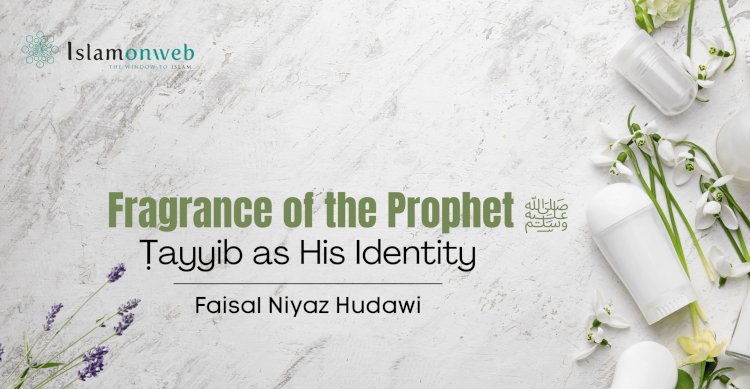



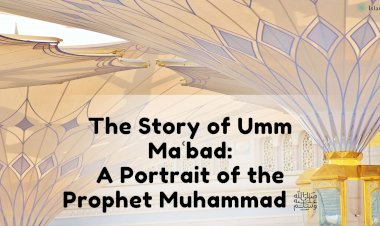

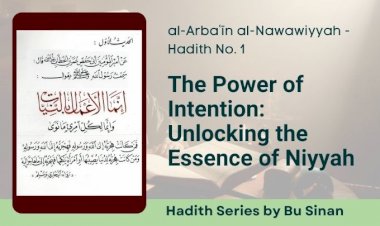
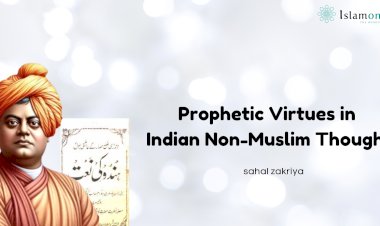
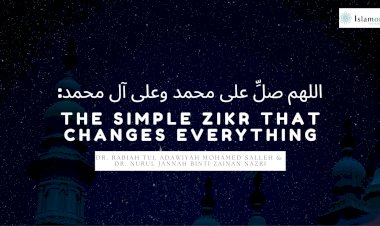
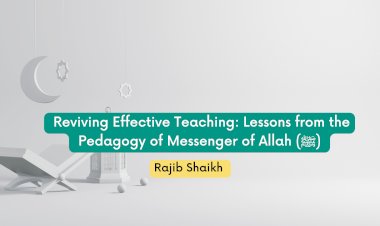














Leave A Comment